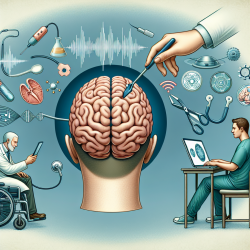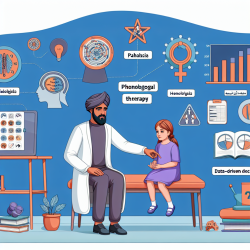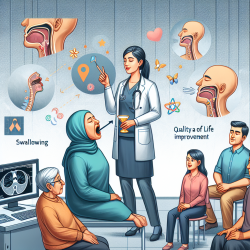The recent research article "Advancing Neurolinguistics in Russia: Experience and Implications of Building Experimental Research and Evidence-Based Practices" offers valuable insights for practitioners in speech-language pathology. The establishment of the Center for Language and Brain at HSE University in Moscow marks a significant milestone in the field, integrating research, clinical work, teaching, and public outreach.
Key Takeaways for Practitioners
1. Embrace Evidence-Based Practices
The Center's focus on experimental research has led to the development of standardized assessment tools like the Russian Aphasia Test (RAT). Implementing such tools in your practice can enhance the accuracy and reliability of language disorder diagnoses.
2. Utilize Cutting-Edge Research Methods
Adopting methods such as eye tracking and neuroimaging can provide deeper insights into language processing mechanisms. These tools have been instrumental in understanding both typical and atypical language processing, contributing to more effective treatment plans.
3. Collaborate Across Disciplines
The interdisciplinary approach at the Center has proven successful in advancing neurolinguistics. Collaboration with experts in linguistics, neuropsychology, and computer science can enrich your practice and open new avenues for research and clinical applications.
4. Invest in Education and Training
Continuous education is crucial. The Center's educational initiatives, such as the Summer Neurolinguistics School, offer opportunities to stay updated with the latest advancements in the field. Consider participating in or organizing similar events to foster professional growth.
5. Engage in Public Outreach
Public outreach programs, like those at the Center, can help raise awareness about language disorders and the importance of evidence-based practices. Engaging with the community can also attract volunteers for research studies and create a supportive environment for your work.
Action Steps
- Integrate standardized assessment tools like the RAT into your practice.
- Explore and adopt advanced research methods such as eye tracking and neuroimaging.
- Seek interdisciplinary collaborations to enhance your research and clinical applications.
- Participate in educational programs and workshops to stay updated with the latest research.
- Engage in public outreach to raise awareness and support for language disorders.
To read the original research paper, please follow this link: Advancing Neurolinguistics in Russia: Experience and Implications of Building Experimental Research and Evidence-Based Practices.










